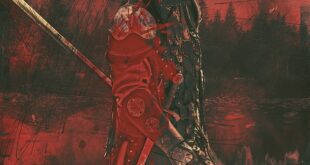10 Reasons Why Military Strategy is Like Chess
Chess has been called the game of kings, perhaps because it requires strategic thinking, a quality that’s essential to any leader confronting a vast enemy in the battlefield. From maneuvering tactical units to outwitting opponents, military strategy can resemble a game of chess.
1. Requiring strategically positioned infantry
Just as a chess player must place their pieces on the board strategically, military leaders must maneuver their forces in optimal positions during an attack.
2. Defining lines of attack
Similarly, military commanders must also draw on plans and tactics to advance their campaigns. By drawing each line of attack, one must guarantee their knowledge of the potential points they should defend or attack in their battle against the opponent.
3. Preparing for one’s plan
In chess being prepared is important. And to impress in military level. Strategy and planning is important to any battle field operation. Military personnel must undergo training, rigorous exercises and deliberate planning before any confrontation!
4. Hidden Attacks
In chess you can always hide your pieces and lunge very deceptively. Almost like a signature move that helps you win. Similarly, in military planning, you need hidden units and it’s important that one can effectively hide units from the enemy.
5. Employing “deception
Just acquiring more units or resources would not be sufficient for winning over your opponent, in fact if you use the same techniques twice, you ultimately give your opponent possibilities of attacking you successfully. Great armies have won by successfully managing to deceive their enemy.
6. Composure-mindedness
Many times, reactions that are instant as tempting, are not always strategic. In chess and in military, you got to sit through the whole consequences of a maneuver before deciding upon one.
7. Environment adaptation
Chess is usually played in an open well-lit room, and a good player can adjust to loud noises and to other people coming around to watch while pondering the right move. Similarly, military commanders need to take note of the factors that are potentially surrounding their environment during operations. Strategic adaptation prevents you from getting exposed onto untrained field of battle.
8. Conventional plans goes down sometimes
Chess has rules for everyone to obey, but these rules can lead to unexpected outcomes. Someone immersed in conventional thinking could miss a winning opportunity. Anyone who tries their hand against an unconventional strategy is liable to get baited into making fatal mistakes.
9. Spatial awareness
Chess is not only about placing pieces on the board; it’s also a matter of elegance, and maintaining clear path vision to where each piece must eventually go. Through making projected movements intuitive, a strong player can calculate remaining possibilities with no tribulation. The same factor needs to come into play for the military as enabling every un-refudable move!
10. The ability to learn from past strategy
People often lose at chess after making over the same mistake twice. A recognized pattern by an opponent in a unit can open new ways to win the chess, leading to being victory successful parties. Same, applies to the military for the common culled out methods extracting, analyzing and then learning from them to make contingency plans which bears hope to reproduce victory over foes.
Conclusion
From spatial awareness to pattern recognition, there is a great deal that chess and military strategy have in common. By keeping perspective in both furd and mensch fields, one ought to stand to emerge victorious on the silver lining of victory.
 Mind Uncharted Explore. Discover. Learn.
Mind Uncharted Explore. Discover. Learn.



